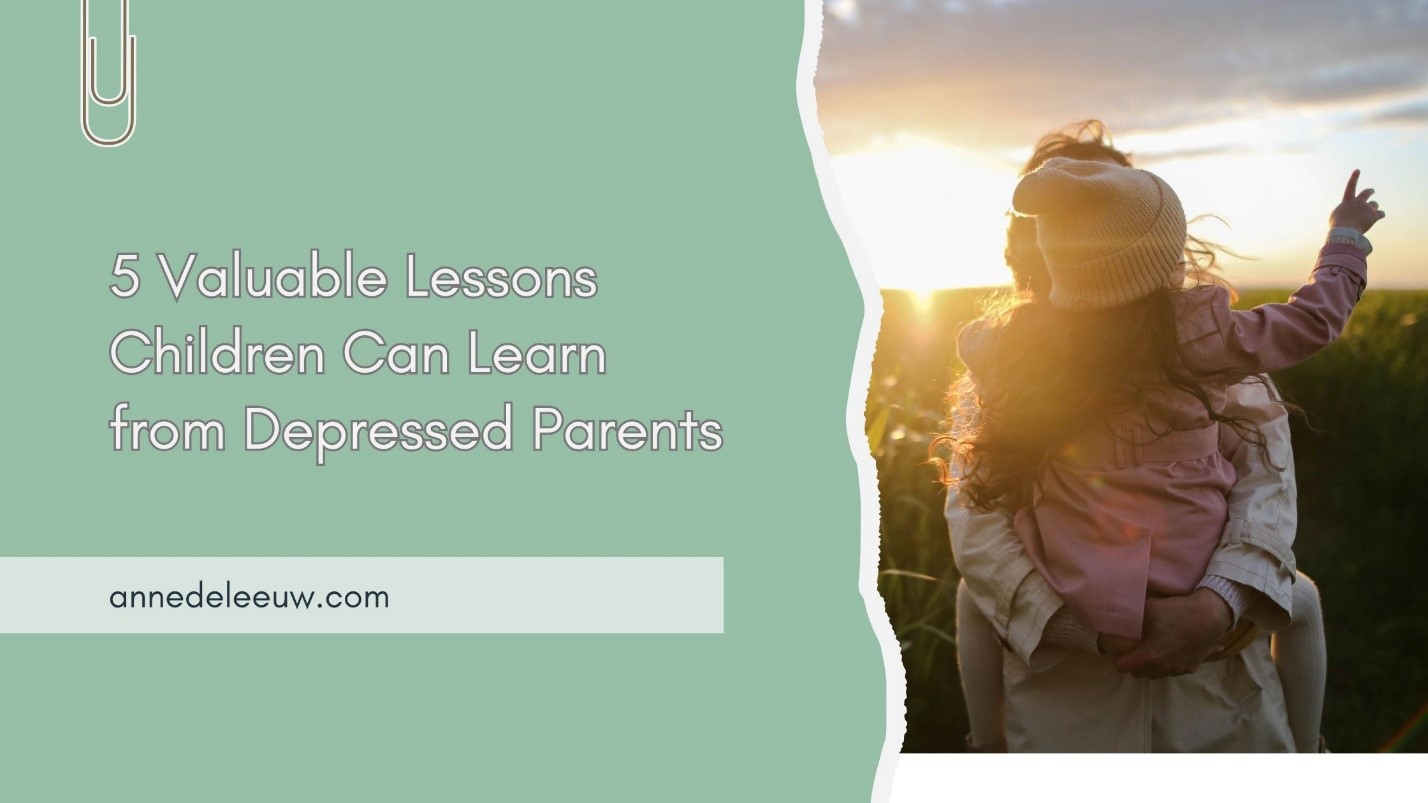Does a depressed parent’s effect on their children actually have to be negative?
Children really can benefit from dealing with a parent with depression. Here’s how..
Let’s talk about parenting with depression. Even just hearing those two words together makes me want to say “Oof.”
Because as all of you courageous souls out there raising a child (or two or more) know parenting can sop up every last bit of your physical energy and emotional strength. And then there’s depression, which does the very same thing – leaving you fatigued and emotionally spent.
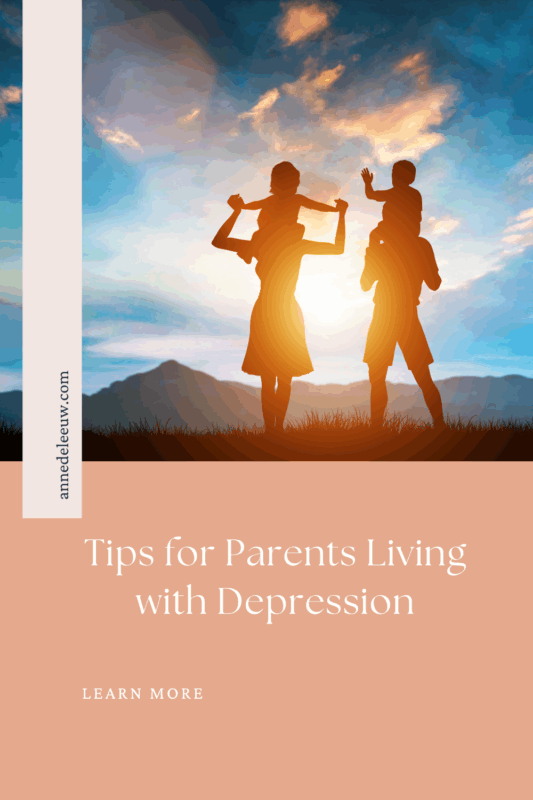
Check us out on Pinterest!
So, what happens when you mix up parenting with depression? Well, need I even say that it can turn into a toxic mess. And so, everyone in this situation worries about the depressed parent’s effect on their children.
First off, I’d like to say that If you’re a parent dealing with depression take heart. And know that you are not alone, because…
- 29% of Americans have been diagnosed with depression at some point in their lives.
- 10.5% of women(vs. 6.2% of men) will likely experience a major depressive episode.
- Women have thegreatest risk for developing depressionin their childbearing years.
- 49% of womenwith children under 18 reported having mental health issues during the pandemic.
- TheCDC says that rates of adult depressionhave quadrupled since 2019.
Wow! Am I right. A whole lot of people are dealing with depression, and many of those people are parents.

A whole lot of people are dealing with depression, and many of those people are parents.
And the second thing I want to say is that I really feel for you.
Because let’s be honest. There are times when parenting could humble the bravest of warriors. Raising children just isn’t an easy gig. I’ve started some days carving smiley faces into pb & j sandwiches and ended them dreaming up detailed plans to beg for work on an oil rigger. I thought that kind of work sounded a heck-of-a-lot easier than parenting my kids while dealing with depression.
Here’s more on why depression and parenting aren’t always the best fit
Parenting requires energy, enthusiasm, patience, fortitude, and grace under pressure. And when parenting while dealing with depression, you likely struggle to feel any of these things. After all, the most common symptoms of depression include:
- Irritability
- Fatigue
- Low Energy
- Loss of interest in activities you once enjoyed
- Overwhelm
- Hopelessness
- Sadness
- Numbness
- Sleep issues
So, there you are listless and exhausted, lugging yourself around with arms and legs that feel like thousand-pound weights. And your toddler asks you to play, or your teenager needs help with homework. And it’s the absolute last thing you want to do. In fact, there’s really not much you want to do as a parent dealing with depression. Then you snap at your kids and spend the rest of your day feeling guilty and sad. I get that.
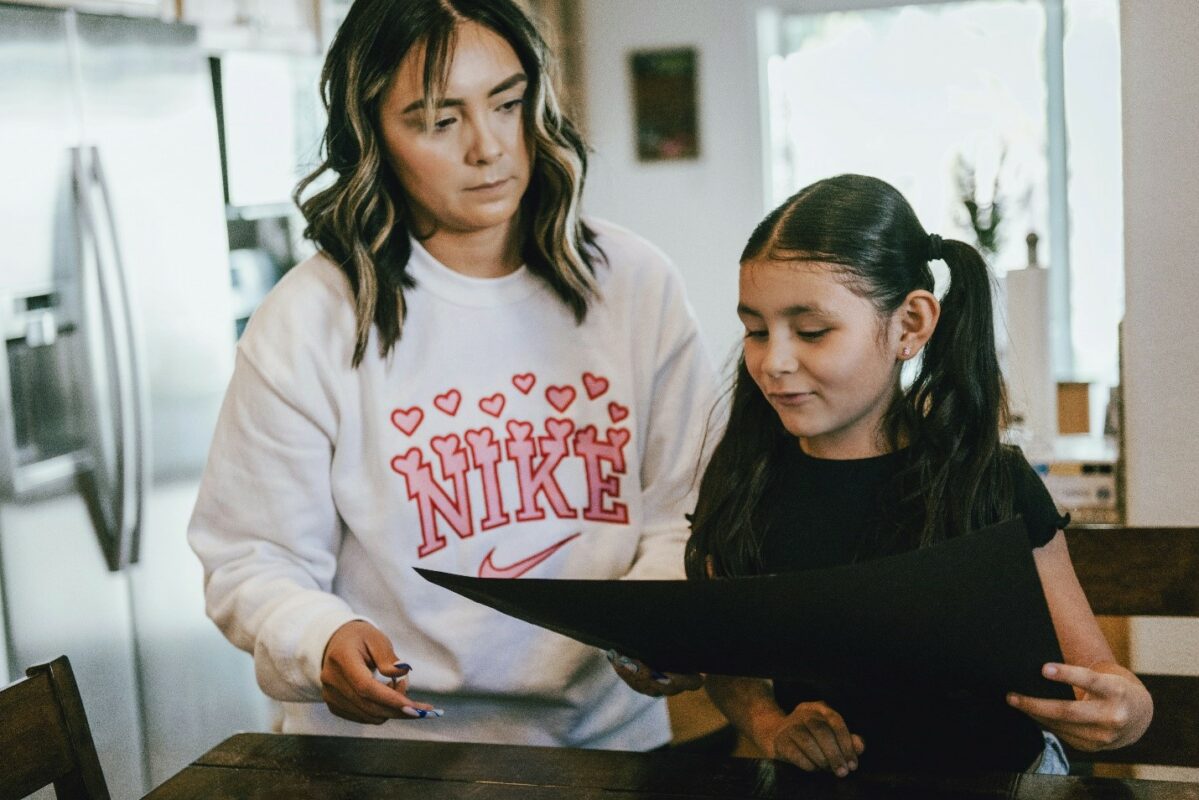
Parents with depression may struggle to enjoy spending time with their kids.
Yep, parenting and depression don’t always mingle with ease. Because depressed parents can have a hard enough time taking care of themselves even without trying to care for others. Parenting can leave you feeling frazzled. Then the stress associated with parenting can intensify bouts of depression.
And there’s more. I’m guessing you’ll agree that as a depressed parent you feel like you’re letting your kids down. And you worry about how dealing with a parent with depression will affect your kids long-term.

Dealing with a parent who has depression isn’t always a negative thing.
Here are some positive lessons children can learn from dealing with a depressed parent
So, what positives can dealing with a depressed parent teach your kids?
Well, they’ll learn the most valuable lessons when they see you taking positive actions to manage your mental health disease. That’s right. Your children really can benefit from dealing with a depressed parent. But only if you’re open about the fact that you’re struggling and then get the help that you need.
Here’s a short list of specifics you can do:
- Talk about your depression. Have a conversation about your depression with your kids. Acknowledge that you understand how dealing with a depressed parent isn’t easy. Keep the conversation age appropriate. Reassure your children that you’re taking steps to heal. And above all, make sure they know that your depression is not their fault. With this, your kids will learn about the importance of open communication.
- Seek treatment. The absolute best thing you can do for yourself and the people you love is get treatment. You need the help, and your kids will learn about the importance of using healthy coping mechanisms to navigate life’s challenges. And I realize this is an easier said than done kind of thing. You probably already feel like you have too much on your plate. And you may wonder how you’ll fit therapy sessions in when you feel you barely have the time to brush your teeth. But it’s really a must. Because children dealing with depressed parents who are getting treatment fare much better than those dealing with depressed parents who are “taking care of things on their own.”
There are so many treatment options out there –nutritional therapy, cognitive behavioral therapy, and antidepressant medication. And they’re effective. You just need to find the one or combination that works for you. During talk therapy, you can talk strategies on how to parent when depressed. Do it for your kids if you can’t make the time to do it for yourself. Get the help you need so you can get your life back and be there for your children.
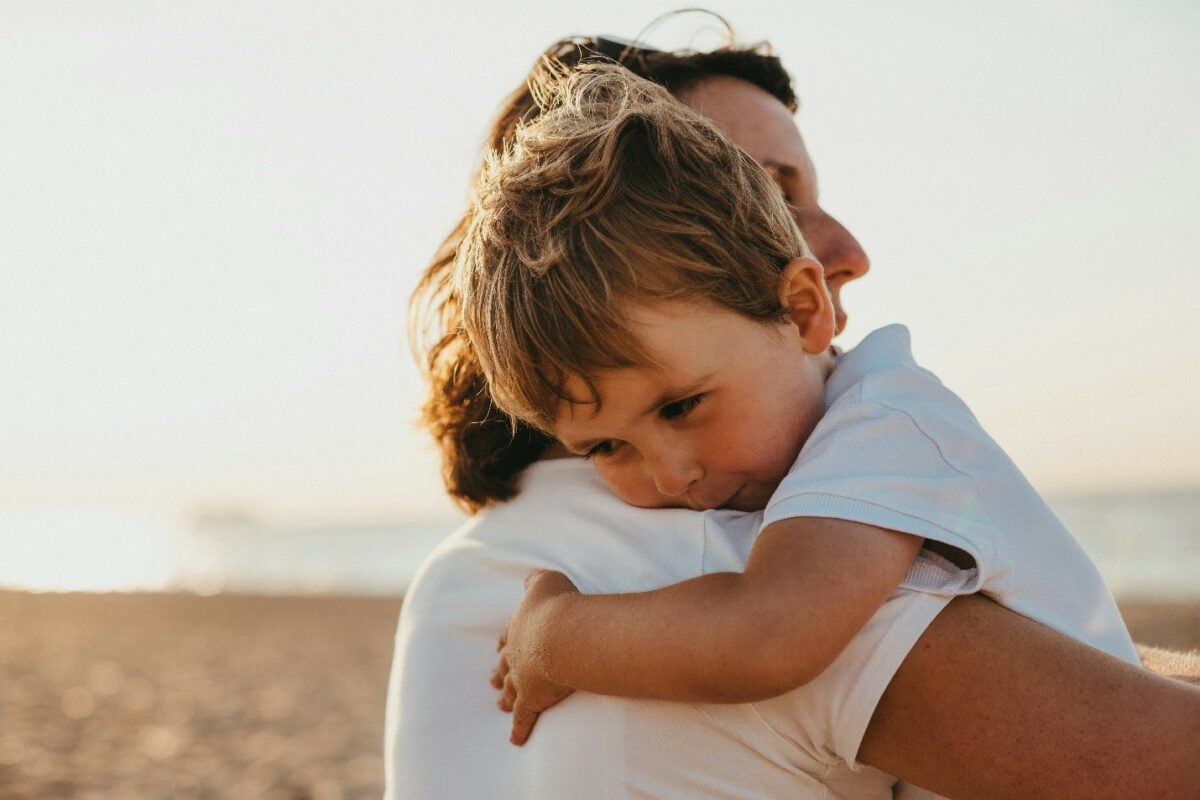
Children dealing with depressed parents who are getting treatment fare better than those dealing with depressed parents who are “taking care of things on their own.”
Tap into your support network. Parenting really isn’t a one- (or even a two-) man show. And my apologies in advance for having to use this old line, but it really does take a village! So, talk to your friends and family. Tell them what you’re going through. Explain how your kids are dealing with a depressed parent. And don’t be afraid to ask for their help. These people can step in on the days you simply can’t show up. Then your children will always get the care and attention they need. And better yet, your kids will learn about the importance of building community and helping others.

Depressed parents shouldn’t be afraid to ask for help so their kids can get all the support they need.
- Share your empathy and compassion. You have a big heart. And how do I know? Because those who’ve faced their own challenges often have a tremendous amount of empathy for others. Your depression has strengthened your capacity to care. And that quality can really come in handy when you’re a parent. As Pema Chodron has said: “Compassion is not a relationship between the healer and the wounded. It’s a relationship between equals. Only when we know our own darkness well can we be present with the darkness of others. Compassion becomes real when we recognize our shared humanity.” Your kids will learn about the necessity of empathy and compassion from you.
- Practice self-compassion. Yes.Give yourself a break! You’re doing the best you can right now, and you will make it through. Yes, you’re a depressed parent. And you know that depression and parenting don’t always mix. But you’re also an exceptional human being who really cares about how well your kids are dealing with a depressed parent. So, be kind to yourself. And when your kids see you practicing self-compassion, they’ll learn to do the same for themselves.

When your kids see you practicing self-compassion, they’ll learn to do the same for themselves.
A few thoughts on how parenting with depression has changed
No breaking news here, but there’s been a lot of stigma associated with depression in our society. And that’s been doubly true when it comes to parenting and depression. Because after all, children are a gift. And so there must be something wrong with anyone who feels less than overjoyed about parenting, right?
But nowadays, the stigma surrounding depression has slowly started to dissipate. And the struggles inherent in parenting with depression are generally better understood for a couple or reasons.
- For one thing, we have a crew of public figures and celebrities speaking out about depression. As one of my personal favorite’s Glennon Doyle has said:
“Depression and anxiety are body snatchers that suck me out of myself so that I appear to be there, but I’m really gone. Other people can still see me, but no one can feel me anymore—including me. For me, the tragedy of mental illness is not that I’m sad but that I’m not anything. Mental illness makes me miss my own life.”
Perfect explanation of what it feels like to struggle with depression. And in a way it explains why parenting with depression is so darn challenging.

The stigma surrounding parents with depression has started to dissipate.
- Also, there are many more resources available for parents struggling with depression than there have been in the past. Those include more traditional forms of depression treatment, including a lengthy list of antidepressant medications as well as in-person and online therapy sessions. And these resources also include modern and holistic approaches to depression treatment such as integrative nutritional therapy.
So yes, the times they are a changin’ when it comes to mental health. And you don’t have to shy away from talking about your depression and seeking treatment.
One more thought on children dealing with a depressed parent
You really can turn parenting with depression into a positive experience for your kids. But again, only if you’re willing to get on out there and get the help you need. And don’t just do it for your kids. Give yourself permission to do it for yourself!
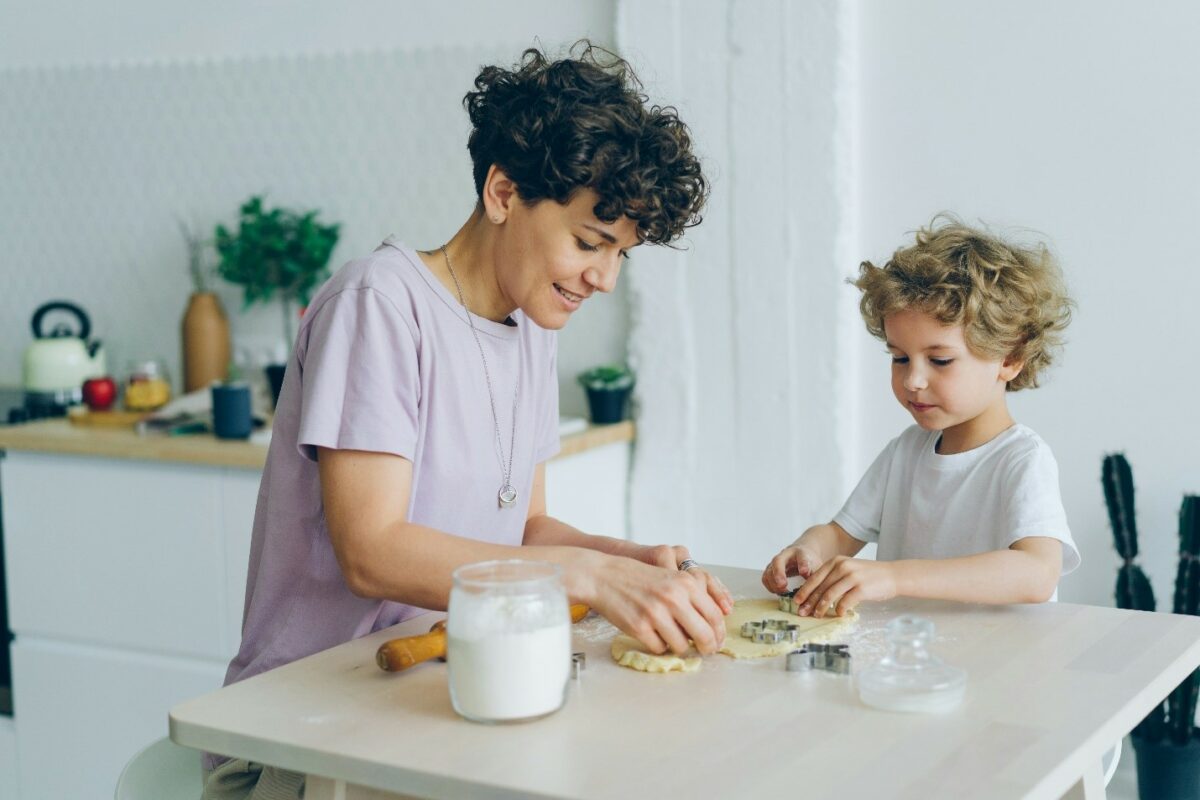
You really can turn parenting with depression into a positive experience for your kids.
Here’s another one I really like from Glennon:
“There is no greater burden on a child than the unlived life of a parent.”
Well said Glennon because that really drives it home for me! Kids can thrive while dealing with a parent with depression. But only if that parent gives themselves the grace they need to truly live again.
Now get on out there and get the help! Please. You’ve got this one, my friend 😊
Learn more about effective treatments for depression and anxiety at https://annedeleeuw.com
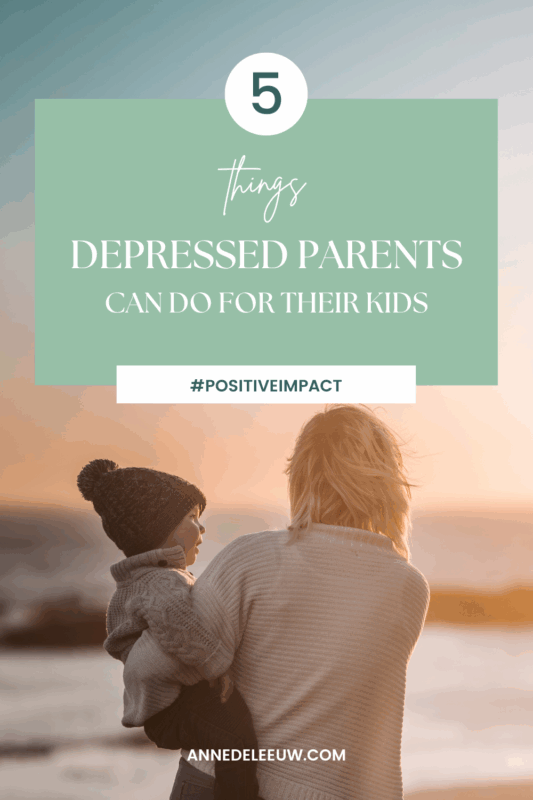
We’re on Pinterest! See you there 😊

